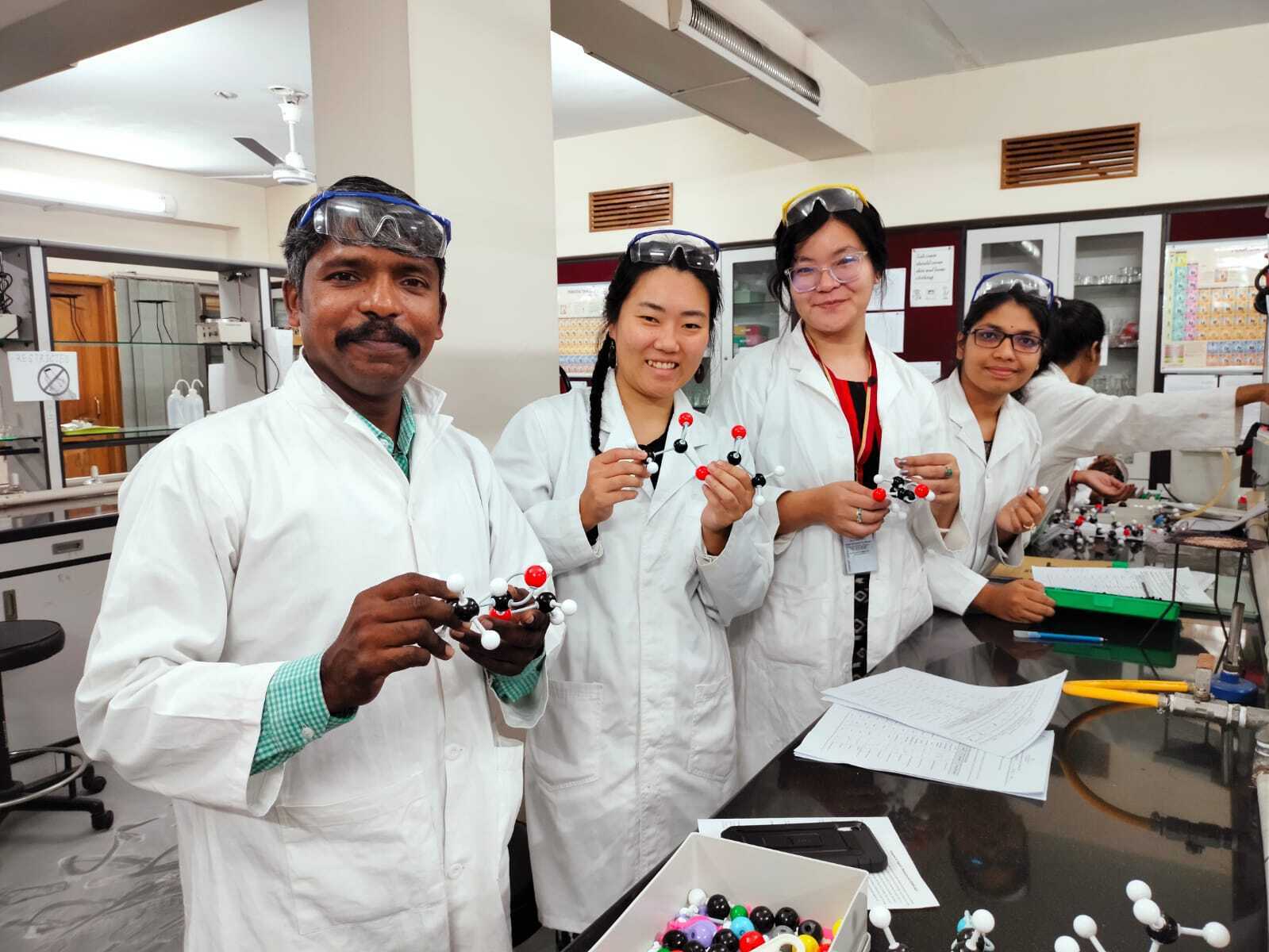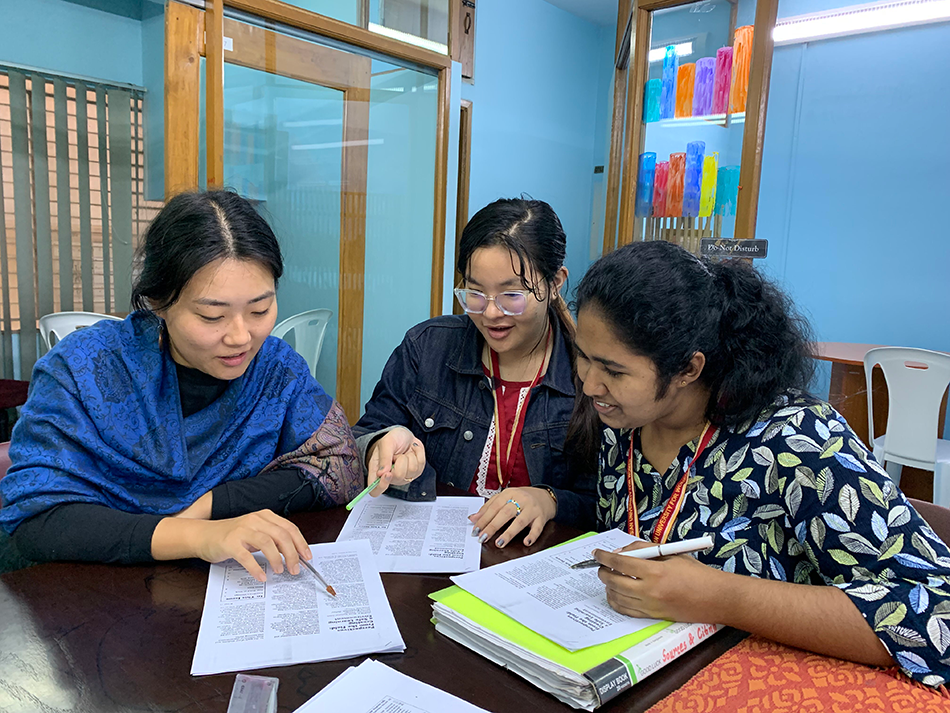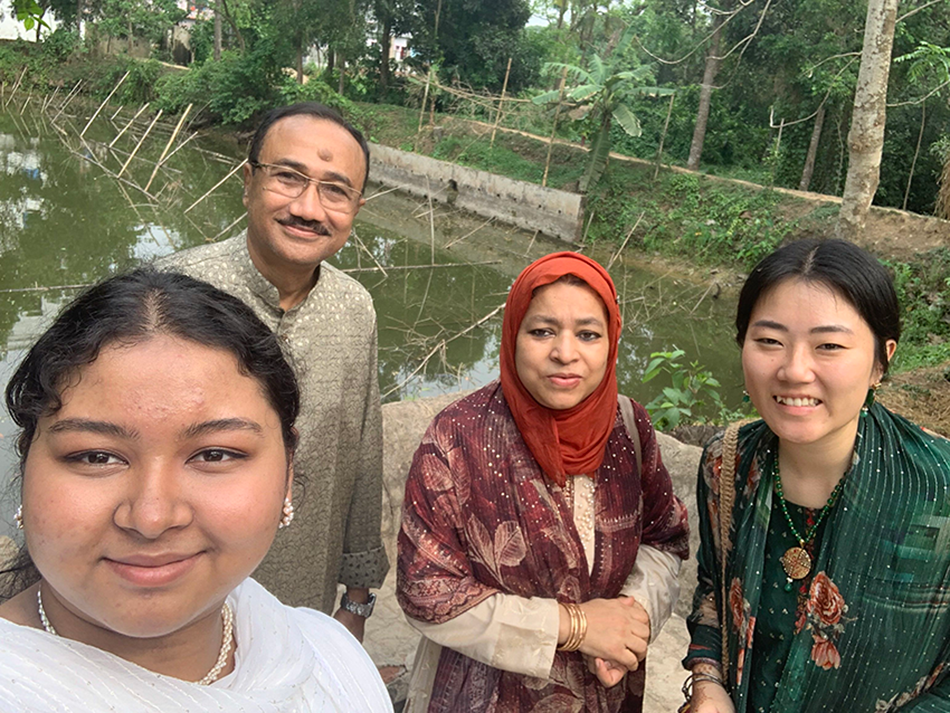While Uka (Jasmine) Nakahigashi has always had a passion for studying science, it is her desire to contribute to humanitarian causes that will drive her career in chemistry.
A second year Bachelor of Science student at the University of Melbourne, Jasmine's chemistry major was put to good use in Bangladesh over the past few months as part of a New Colombo Plan Scholarship that she says has changed her life.
"Bangladesh is a wonderful country filled with generous and welcoming people who have a proud tradition of independence and resilience," Jasmine says.
"But it is also a place with many natural adversities to overcome."
Located in the Bengal Basin, one of the worst areas in the world for arsenic contaminated groundwater, Bangladesh is grappling with the long-term effects of arsenic poisoning on its population.
Contaminated groundwater results in more than 40,000 deaths a year in Bangladesh, according to the World Health Organisation.
Helping to find solutions to address arsenic poisoning was the focus of Jasmine's time in the region. She interned with small non-government organisation Chemists Without Borders (CWB) to support the development of arsenic mitigation strategies in the Teriail community in Chittagong.
The budding chemist was engaged in water sampling and testing, staging community focus groups, a literature review, and local consultations, all to support recommendations for the community and a research paper and donor grant report about the issues.
"Back in the 1960s all the best advice was to avoid surface water because of the heavy impact of water-borne diseases and high salinity," she says.
"Tube wells were supposed to provide the safe alternative but unfortunately they were often built in areas where the groundwater was contaminated by high levels of arsenic."
Jasmine says efforts to address arsenic poisoning in Bangladesh focus on better education and communication, better science, and urgent action to improve safe water supplies.
"Being able to test the safety of well water quickly and cheaply is really important, but it's also vital to work closely with the communities so that they better understand the dangers," she says.
"One of the goals outlined in the paper I prepared is to ensure that every household has a safe water source within 100 metres and but also that residents know where safe sources are and why they must be used.
"That paper is now with CWB, and we are hoping to get support for the actions recommended.
"My personal goal is to work as an analytical chemist to develop improved arsenic testing kits, ones that are easier to use and cheaper to roll out.
Beyond the science, Jasmine says perhaps the most valuable lesson from her time in Bangladesh has come from the resilience of the people she met.
"During my time with CWB, I interned at the Asian University for Women, an institution dedicated to providing an education for women from all over Asia who have experienced hardships, where I assisted in chemistry lessons and tutored English and Maths, a pre-undergraduate requirement for many of the students," she says.
"Their remarkable achievements and resilience in overcoming adversities that I can't even imagine facing, are awe-inspiring.
"At every stage of this internship I have met such warm and welcoming people who have instantly treated me like their own.
"I've also developed a lot as a researcher and problem-solver and that has given me more confidence.
Jasmine plans to continue working with CWB and return to Bangladesh, which thanks to her homestay family, she says feels like a second home.









